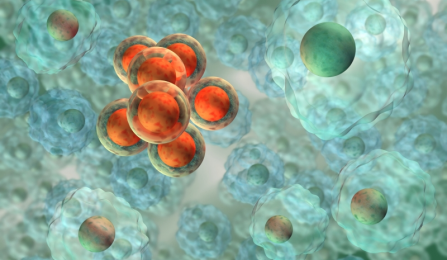Knowledge of Risk Perception and Behavior

People sometimes don’t know their risk for health problems. This study examines how not knowing your risk affects engaging in health behaviors to prevent health problems.
Principal Investigator: Erika Waters, Washington University in Saint Louis
Co-investigators: Marc T. Kiviniemi, PhD and Heather Orom, PhD
Funding Agency: National Cancer Institute (NCI)
Period: 1/2014 - 12/2015
Abstract: Nearly half of all cancers cases might be avoided if people were to engage in healthy lifestyle and early detection behaviors. A central tenet of theories of health behavior is that awareness of a threat is an important condition for protective action. Empirical evidence supports the idea that higher perceptions of risk motivate people to engage in cancer prevention and detection behaviors. Consequently, an important component of cancer surveillance has been assessing the population's perceptions of risk of developing cancer. Health promotion and education campaigns that seek to promote cancer prevention and early detection behaviors often attempt to increase the public's sense of personal risk of developing cancer. In order to optimize surveillance and develop health education and promotion campaigns that engage those at greatest risk for not engaging in protective behaviors, it is important that we understand the relationship between perceived risk and health behavior for all research respondents. Currently this is not the case.
Our research found that at least 16 million people in the U.S. would respond "I don't know" if asked their perceived risk of developing cancer. Many of these people are members of populations that experience cancer disparities. Little is known about the health behaviors of these individuals because people who respond don't know have typically been dropped from analyses. Thus, these individuals have been systematically excluded from much cancer prevention research. However, if, as our preliminary research suggests, they are unaware of their cancer risk (or unable or unwilling to report it), they may be at increased risk for not engaging in cancer prevention and detection behaviors. Therefore, understanding the relation of don't know responding to engaging in preventive health behavior is a critical research need.
To test the hypothesis that "don't know" responding is associated with lower engagement in cancer prevention and detection behaviors, we will examine the association between "don't know" responding to risk perception questions and a wide variety of cancer prevention behaviors in 14 large, population-based surveys (i.e., multiple years of NHIS, HINTS, and BRFSS). Specific behaviors include physical activity, fruit and vegetable intake, tobacco use, skin protection, HPV vaccination, cancer screening (breast, colorectal, prostate), and, because AIDS is a risk factor for several cancers, HIV testing. Multivariate linear and logistic regression will be used to estimate the relation between "don't know" responding to perceived risk questions and engaging in a given cancer prevention or early detection behavior, after controlling for demographic characteristics. This research will address a gap in knowledge about the health behaviors of the 7-10% of U.S. adults-more than 16 million people-who respond "don't know" to cancer risk perception survey questions. The study will also advance our knowledge of why existing intervention approaches may be ineffective for certain populations that experience cancer disparities, as well as identify potential intervention components and target populations for such interventions.

